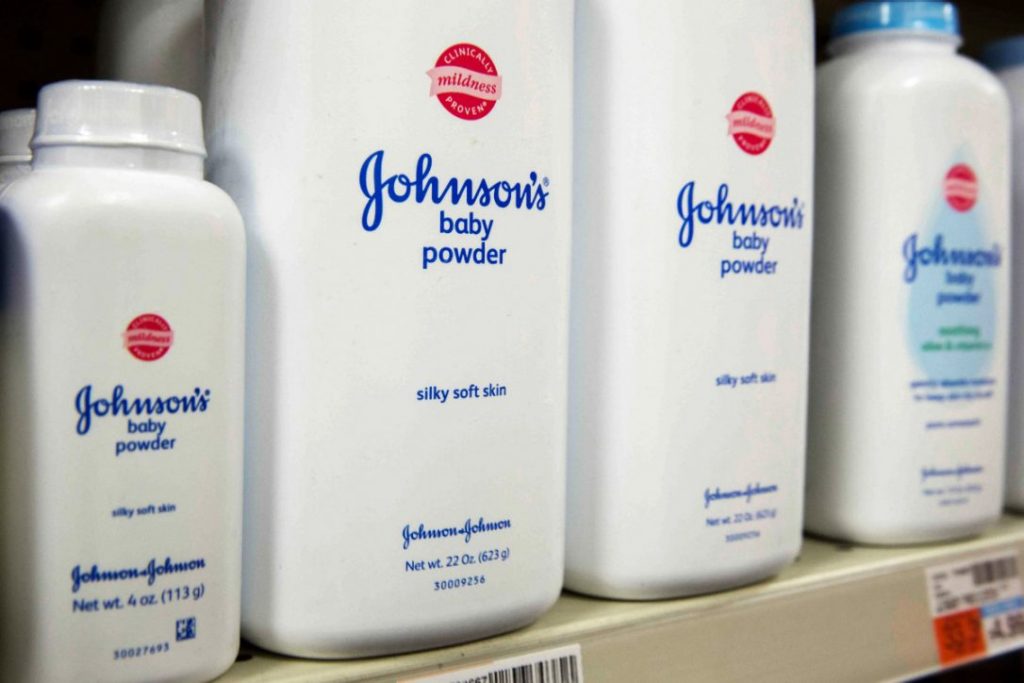A jury in Middlesex County, New Jersey, awarded $30 million in compensatory damages to a man who got cancer after decades of using talcum powder.
His wife was awarded $7 million in damages.
Banker Stephen Lanzo said that he used Johnson & Johnson products like Shower to Shower and Baby Powder for over 30 years, and he claimed that inhaling the powder caused his mesothelioma, an aggressive and deadly cancer that impacts the lining of the lungs.
Deposits of talc, one of the Earth’s softest minerals, are often found near deposits of the minerals that constitute asbestos, and studies have shown the risk of cross-contamination during mining.
Johnson & Johnson said that its talc products do not contain asbestos, which, it noted, has been a legal requirement since the 1970s.
A batch of similar asbestos-related cases is making its way through the courts – with another one going to trial in May in South Carolina.
A jury in California found in favor of Johnson & Johnson in an asbestos-related case in November.
Lanzo’s case was the first to go to trial in New Jersey, which is in fact the home state of Johnson & Johnson.
Johnson & Johnson as well as other talcum powder companies face thousands of separate but related cases that draw a connection between genital talc use and ovarian cancer.
In this case, the jury awarded $7 million to Kendra, Stephen Lanzo’s wife, and $30 million to him, with Johnson & Johnson getting 70% of the liability and Imerys Talc, a supplier of the mineral, liable for 30%.
The Lanzos’ lawyers have accused the company of holding back information from its customers about the health risks of asbestos in its talc products since the 1960s.
Johnson & Johnson argued that it did extensive testing to make sure its products were not contaminated.
“While we are disappointed with this decision, the jury has further deliberations to conduct in this trial and we will reserve additional comment until the case is fully completed,” said Carol Goodrich, a spokeswoman for Johnson & Johnson.
Imerys Talc spokeswoman Gwen Myers said in a statement, “Our hearts go out to those affected by all forms of cancer. We are disappointed by the jury’s decision, but we remain confident that talc did not cause Mr. Lanzo’s cancer. The evidence was clear that his asbestos exposure came from a different source such as the asbestos found in his childhood home or schools, and the jury’s decision is inconsistent with a recently published study of workers who mined and milled talc all day over the course of more than 50 years that did not find a single case of mesothelioma.
“Imerys follows all FDA and other regulatory guidelines and utilizes rigorous testing to ensure that our talc meets the highest quality standards, and we are just as confident in the safety of our products as ever. We intend to appeal this decision and will continue to stand by the safety of our product.”
The jury will start a second part phase of the trial to consider punitive damages this coming tuesday.
